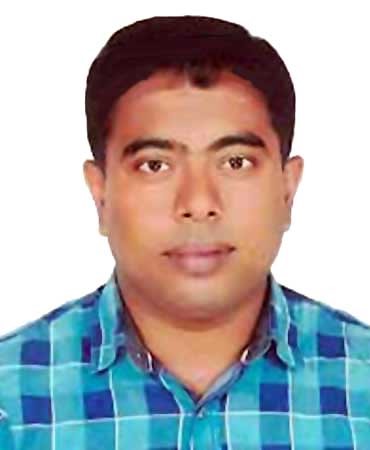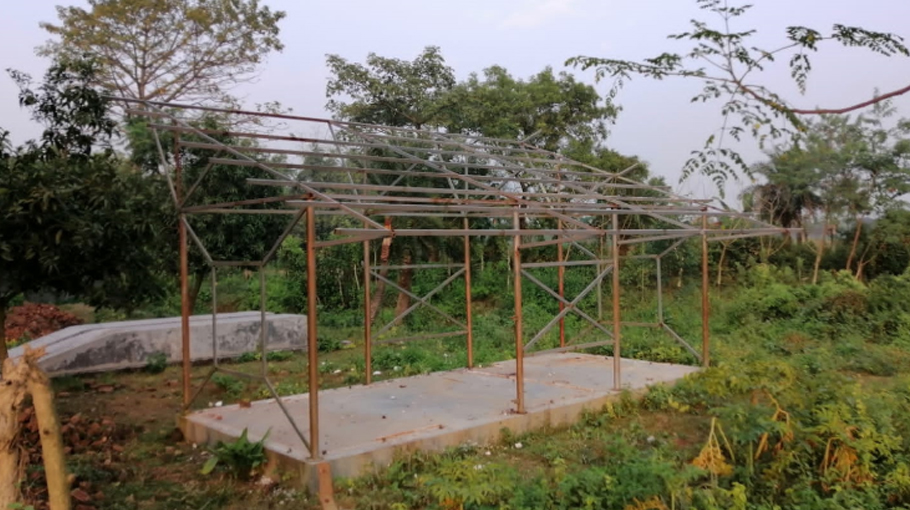Renewable energy
Research fund looted


Allegations of money looting and embezzlement are there in the name of research and development work on renewable energy funded by the World Bank and the Infrastructure Development Company Limited (IDCOL).
A total of 13 projects worth taka $1 million (taka 8.57 crore) have been implemented. However, none of these except one have commercial expansion. Most of the projects have become out of use. Besides, a project has been sold out illegally by the researcher.
Energy expert Professor Dr. M. Shamsul Alam told Bangladesh Post ‘anyone is doing here according to his whims and IDCOL is giving licence to this. The main task of IDCOL, as a government institution, is to provide loans, create entrepreneurs and do business. But in the name of research, they are embezzling money. There are other government institutions for research. Then how did IDCOL get the responsibility? Do they have the ability to do research?’
‘IDCOL officials are allotting work to their favoured ones in illegal way. Corruption in big scale has crept around the IDCOL. Low quality equipment is being used in various projects without supervision. IDCOL has created a mismanagement in the renewable sector,’ he added.
‘There is a huge potential of renewable energy in the country. The government should have strict monitoring of the issue and bring it under accountability,’ Mr. Alam said.
However, IDCOL says an experienced committee headed by the late Professor Dr. Jamilur Reza Chowdhury evaluated these projects .The whole work has been done on the basis of transparency.
IDCOL, a non-bank financial institution, received $1 million fund from the World Bank under Rural Electrification and Renewable Energy Development Project to support research and development initiatives.
Under the initiatives, Solar E. Technology, a private company has conducted a research on the project-‘solar hybrid cold storage’ at Chuadanga district in 2017. Its main objective was to develop a cost effective and sustainable cold storage for rural areas to preserve vegetables, fresh milk & medicines. But the rural people did not get any benefit from the project.
At one stage, Naimul Islam, managing director of Solar E. Technology, sold solar PV module and damaged batteries to local resident Nur Alam Liton at Tk 3.65 lakh on September 15 last. He brought other valuable items of the project with the people of his organization.
Nur Alam Liton told Bangladesh Post that ‘during the implementation of the project on his land, Solar E. technology committed that the income generated from the cold storage would be used for rent of the land along with salary for a caretaker. But after a few days of running, it shut down due to technical fault. After reporting it to the company repeatedly, they did not take any initiative. They also didn’t pay monthly salary of a caretaker for more than 3 years. I did not get any rent for the land as there was no income from cold storage. At one stage, the company paid the liability with some old solar panels and batteries.’
Solar E. Technology implemented another research project named Solar Charging Station for electric vehicles at Chuadanga. However, it also did not work.
Australia expatriate Naimul Islam, Managing director of the company, has recently returned to Bangladesh and is trying to sell the project. He has already finalized the matter with a local person.
Bangladesh Post tried to contact Naimul Islam, through mobile phone more than once to know his opinion, but didn’t get any response.
There are two contact persons with numbers in the company website. Ahmedul Kabir Upal, one of them said that he had left the company long ago.
Another contact person Ashraful Islam said he is not a permanent employee of the company. He does some work as a technician occasionally.
Asked about the office address of the company, ‘he said currently there is no office in Chuadanga. I heard an office has been set up in Dhaka. But I don't know where it is.’
Md. Wahidur Rahman, Senior Vice President & Unit Head (Technical) of IDCOL told Bangladesh Post that IDCOL is the owner of these projects. There is no chance of selling it personally. So if someone sells these projects on his own initiative then it is unfair. Legal action will be taken if evidence is found.
He also said hundred percent success cannot be expected in all research projects. But in many cases we have succeeded. A project has gained international recognition. Many university students are getting research opportunities through some projects.
‘There are plans to expand some projects to make them commercially viable. We have already done some preliminary work on it. Due to Covid-19, the monitoring and re-expansion work of these projects have been hampered,” he added.
IDCOL has extended grant support to different research teams of United International University (UIU) for four different projects. One is to develop a hybrid mini cold storage while another team developed of solar PV panel energized boats. Both the projects are mainly designed for the rural remote areas of the country. Third team was developed a smart solar irrigation monitoring system suitable in the context of the country.
Under the fourth project UIU and Solshare have developed a robust and affordable Community based DC Nanogrid for combined household and Productive use. This project has received worldwide recognition and acclamation from international bodies i.e. 2016 Intersolar Award – “Outstanding Solar Project” and 2016 UN Momentum for Change Award.
However, no initiative has been taken to start commercial expansion on solar boats and hybrid mini cold storage. On the other hand, smart solar irrigation system is also limited in research. It was not implemented for farmers yet.
Practical Action, Bangladesh developed a project called ‘Municipal waste to biogas: A Business Model Under-Private Partnership’ in Bagerhat district in 2018 to facilitate source segregation and safe disposal of wastes in municipality. The project activities include design and construction of a treatment plant, supply and storage of biogas for cooking and running machines etc.
However, after a while, biogas production stopped due to technical problems, which was not repaired later. At one stage it was assigned to ‘Supti Mohila Unnayan Songstha’, a local organization, for taking care.
Jhimi Mondal, Executive Director of the organization told Bangladesh Post, "Probably in 2019 we will get the responsibility of this project in a faulty condition. The Practical Action committed that it will be implemented on a large scale in future. At our own expense, we have collected regular garbage from houses and stored it in the project area. But since the production was stopped, not a single buck was earned from here. At one stage, I was forced to stop this activity in April, 2020.”
BRAC University has developed 15 solar powered electric rickshaw-vans (human hauler, ambulance, cargo).
Principal Researcher of the project and BRAC University Professor A.K.M Abdul Malek Azad told Bangladesh Post, ‘the project was successfully implemented in Savar in 2016. I made a proposal to the EPRC (Energy and Power Research Council) to expand it extensively. But they reject it without any reason.’
‘The money has been deposited in the fund of BRAC University after selling the project materials in consultation with IDCOL in 2017,’ he said.
Alimul Islam, Professor of Bangladesh Agricultural University with his team conducted a research and development on ‘Biogas Production Efficiency in Domestic Biogas Digesters suitable for Bangladesh’ in 2016 worth taka around one core in 2018.
Alimul Islam told Bangladesh Post, ‘The main objective of the project was to meet the demand of gas by producing biogas through this technology in North Bengal. We have already handed over it to IDCOL. Now they will take the next step.’
Alimul Islam also said, ‘We have an instrument bought under the project, which will be used in any other research project. Two instruments are being used in the university laboratory. And some expensive equipment have probably been handed over to IDCOL. I'm not sure.’
Salma Akhter, Professor of Shahjalal University of Science and Technology with her team conducted a project on ‘Two Stage Bioreactor: A new technology to enhance biogas production’ worth taka around 25 lakh in 2016, which ended in 2018.
She told Bangladesh Post, ‘the main objective of the project was to produce more biogas in less time. We have succeeded. A family in Sylhet was cooking with it at a limited scale. But the biogas plant is currently shut down due to minor faults. Hopefully, it will resume soon. I myself could not follow up on it as I was infected with Covid-19. But, I am working on how to make this project more viable. However, all the equipment purchased under the project is now being used in the university's laboratory.’
A team led by Professor Dr. Hasan Mohammad Mostofa Afroz of Dhaka University of Engineering & Technology (DUET) conducted research to design & develop a thermal energy storage system using proper Phase Changing Material (PCM).
Mostofa Afroz said, ‘We have successfully completed it and now students are gaining practical knowledge through it. Students of two batches of MSc Engineering have already acquired practical knowledge from here.’
With the support from IDCOL, Bangladesh Atomic Energy Commission produced dye-sensitized solar cell using local technology and resources. Besides, Bangladesh University of Engineering & Technology was conducted a research and development project on Hydrogen fuel production from water by solar irradiation, which was not implemented commercially yet.



